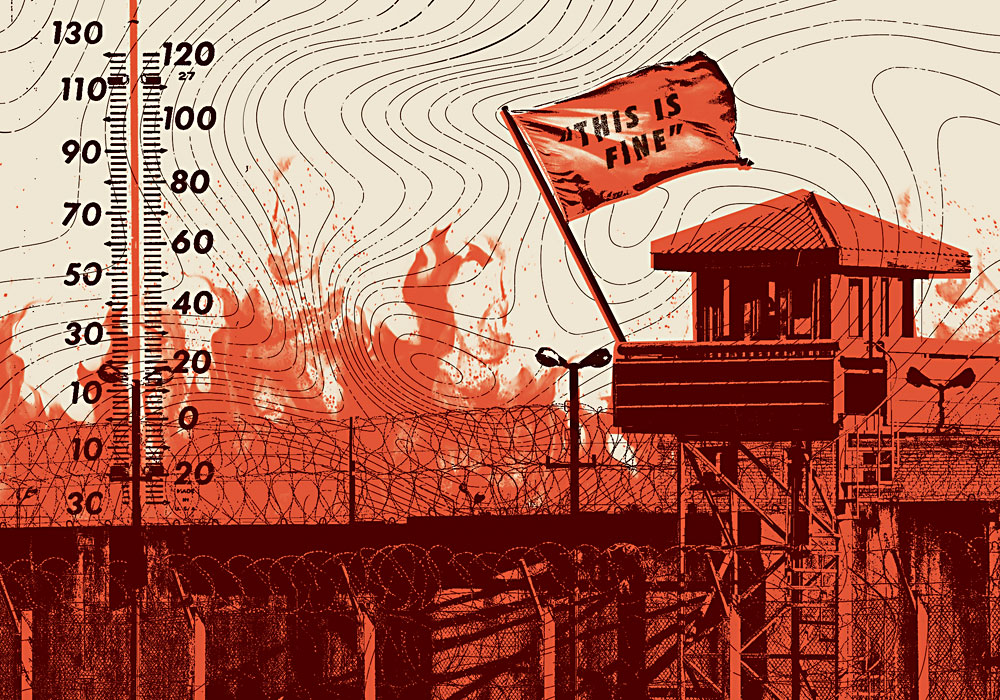
The summer of 2013 was my first summer in prison after being incarcerated for blowing the whistle on the CIA’s torture program.
When summer arrived in Loretto, Pennsylvania, I had already made a handful of friends, most of whom came from the prison’s “Italian” population. One warm day in the spring, I mentioned to one of the Italians that I hadn’t spent a summer in Pennsylvania since my high school years.
My friend commented that it was probably going to be hotter than I remembered it being, owing primarily to climate change. But he added, “Be careful. There’s no air conditioning in here. And you don’t realize how hot it’s getting until it’s too hot.” He was right.
The only parts of the prison that had air conditioning were the warden’s office, the medical unit, and the guard booths. The 1,425 prisoners (in a prison built for 875) had to fend for themselves in the heat. And to make matters worse, many of the housing units, including mine, had no windows. None. We had no idea if it was day, night, raining, snowing, sunny or cloudy. But we could certainly feel the heat.
In retrospect, I was lucky. First, I only spent 23 months in prison, and I had the freedom to take a bath towel, soak it in cool water, and lay it on top of myself in bed. That is what most of us did to get through the days. Second, I was in Pennsylvania, not Texas, Florida, Arizona, Louisiana, Mississippi, Alabama or any of the other states that are notorious for having prisons with no air conditioning.
I want to put this into perspective. I am not talking about people just being uncomfortable. It is far worse than just that:
- According to the Centers for Disease Control and Prevention, more than 13,000 prisoners died from excessive heat in U.S. prisons over the past 20 years, more then 600 per year.
- A current lawsuit in Texas alleges that temperatures in prisons there routinely reach between 120 and 130 degrees and that prisoners often resort to splashing themselves with toilet water to cool down. Others attempt suicide so that they can be even temporarily transferred to medical units, which does have air conditioning.
- Similar excessive heat cases have been filed against the respective Departments of Corrections in Georgia, New Mexico and Louisiana where, attorneys allege, state laws mandate that indoor temperatures in county jails be kept between 65 and 85 degrees, but that the laws are simply ignored in state prisons.
- The United Nations has condemned the Texas prison system’s lack of air conditioning as a violation of the United Nations Convention Against Torture.
- The summer temperatures that many American prisoners face every day actually violate animal cruelty laws.
- A 2023 study published in the scholarly journal PLOS ONE found that suicide rates surged during the summer in prisons where there is no air conditioning. And even worse, the study found that, for every 10-degree rise in indoor temperatures in prisons, death rates increase by 5.2%. The increase is 6.7% for prisoners with heart ailments.
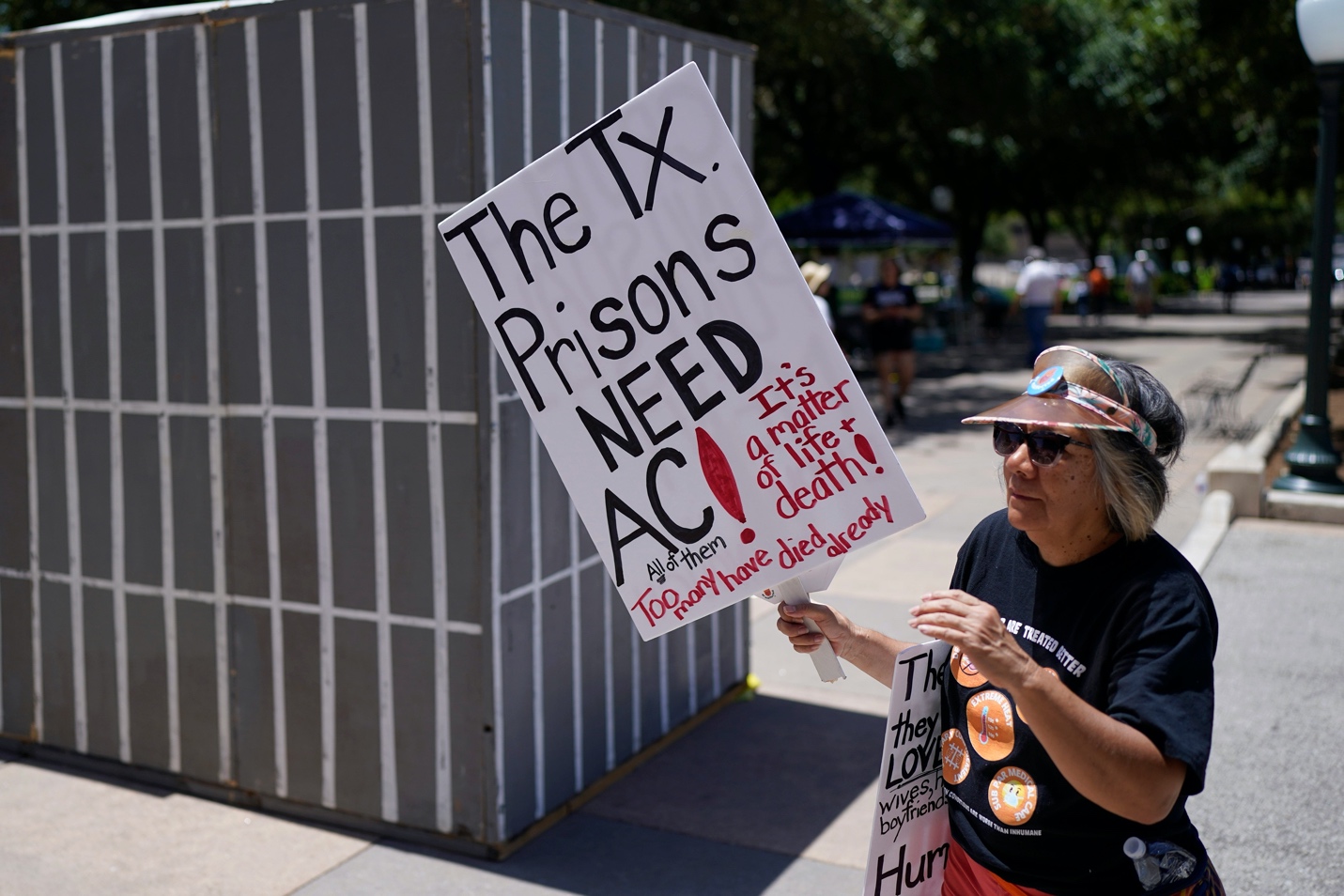
To be clear, the problem of dangerous temperatures in American prisons is not confined to the South. A study by epidemiologists at Brown University found that the situation is actually worse in the Northeast, where no prisons have air conditioning and where prisoners are not accustomed to prolonged high temperatures.
Dr. Julianne Skarha and her team found that a typical two-day heat wave meant a mortality increase of 0.8% in the Midwest, 1.3% in the South, 8.6% in the West, and 21.0% in the Northeast.
This is not a complicated issue. Myriad federal courts, as well as the Supreme Court, have ruled on prison heat. Federal courts have interpreted the Eighth Amendment’s ban on cruel and unusual punishment to mean that conditions of confinement must meet the “minimal civilized measures of life’s necessities” and must conform to society’s evolving standards of decency.
The Supreme Court ruled in the case of Farmer v. Brennan (1994) that conditions of confinement are unconstitutional if “they present a substantial risk of harm to an inmate’s health and if correctional officials acted with deliberate indifference to that substantial risk.”
There is no good news here. It is easy to say, “take to the courts!” But prisoners have taken to the courts for years, they have won, and nothing has changed.
It is easy to say, “Go to the media!” But it is the media which have kept us informed about these abominations for years. And nobody really seems to care. For those who would suggest going to Congress, I would ask (sarcastically) “And what district are you running for re-election in?”
Can you imagine going on the campaign trail to give your stump speech and saying, “I want to make prisoners more comfortable by adding air conditioning to American prisons!” It will not win you any new votes
With that said, we have to keep up the fight, whether it is at the United Nations, in courtrooms, on the editorial pages, or in the streets. Something’s got to give. Eventually.

CovertAction Magazine is made possible by subscriptions, orders and donations from readers like you.
Blow the Whistle on U.S. Imperialism
Click the whistle and donate
When you donate to CovertAction Magazine, you are supporting investigative journalism. Your contributions go directly to supporting the development, production, editing, and dissemination of the Magazine.
CovertAction Magazine does not receive corporate or government sponsorship. Yet, we hold a steadfast commitment to providing compensation for writers, editorial and technical support. Your support helps facilitate this compensation as well as increase the caliber of this work.
Please make a donation by clicking on the donate logo above and enter the amount and your credit or debit card information.
CovertAction Institute, Inc. (CAI) is a 501(c)(3) non-profit organization and your gift is tax-deductible for federal income purposes. CAI’s tax-exempt ID number is 87-2461683.
We sincerely thank you for your support.
Disclaimer: The contents of this article are the sole responsibility of the author(s). CovertAction Institute, Inc. (CAI), including its Board of Directors (BD), Editorial Board (EB), Advisory Board (AB), staff, volunteers and its projects (including CovertAction Magazine) are not responsible for any inaccurate or incorrect statement in this article. This article also does not necessarily represent the views the BD, the EB, the AB, staff, volunteers, or any members of its projects.
Differing viewpoints: CAM publishes articles with differing viewpoints in an effort to nurture vibrant debate and thoughtful critical analysis. Feel free to comment on the articles in the comment section and/or send your letters to the Editors, which we will publish in the Letters column.
Copyrighted Material: This web site may contain copyrighted material the use of which has not always been specifically authorized by the copyright owner. As a not-for-profit charitable organization incorporated in the State of New York, we are making such material available in an effort to advance the understanding of humanity’s problems and hopefully to help find solutions for those problems. We believe this constitutes a ‘fair use’ of any such copyrighted material as provided for in section 107 of the US Copyright Law. You can read more about ‘fair use’ and US Copyright Law at the Legal Information Institute of Cornell Law School.
Republishing: CovertAction Magazine (CAM) grants permission to cross-post CAM articles on not-for-profit community internet sites as long as the source is acknowledged together with a hyperlink to the original CovertAction Magazine article. Also, kindly let us know at info@CovertActionMagazine.com. For publication of CAM articles in print or other forms including commercial internet sites, contact: info@CovertActionMagazine.com.
By using this site, you agree to these terms above.
About the Author
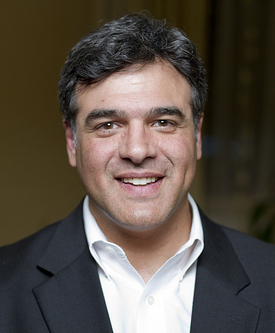
John Kiriakou was a CIA analyst and case officer from 1990 to 2004.
In December 2007, John was the first U.S. government official to confirm that waterboarding was used to interrogate al-Qaeda prisoners, a practice he described as torture.
Kiriakou was a former senior investigator for the Senate Foreign Relations Committee and a former counter-terrorism consultant. While employed with the CIA, he was involved in critical counter-terrorism missions following the terrorist attacks of September 11, 2001, but refused to be trained in so-called “enhanced interrogation techniques,” nor did he ever authorize or engage in such crimes.
After leaving the CIA, Kiriakou appeared on ABC News in an interview with Brian Ross, during which he became the first former CIA officer to confirm the existence of the CIA’s torture program. Kiriakou’s interview revealed that this practice was not just the result of a few rogue agents, but was official U.S. policy approved at the highest levels of the government.
Kiriakou is the sole CIA agent to go to jail in connection with the U.S. torture program, despite the fact that he never tortured anyone. Rather, he blew the whistle on this horrific wrongdoing.
John can be reached at: jkiriakou@mac.com.


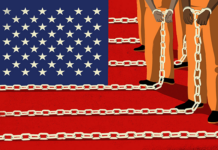



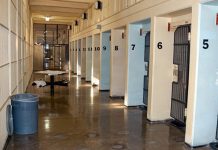


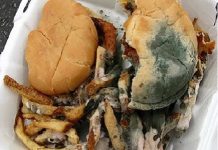

I’m truly enjoying the design and layout of your website. It’s a very easy on the eyes which makes it much more enjoyable for me to come here and visit more often. Did you hire out a designer to create your theme? Excellent work!